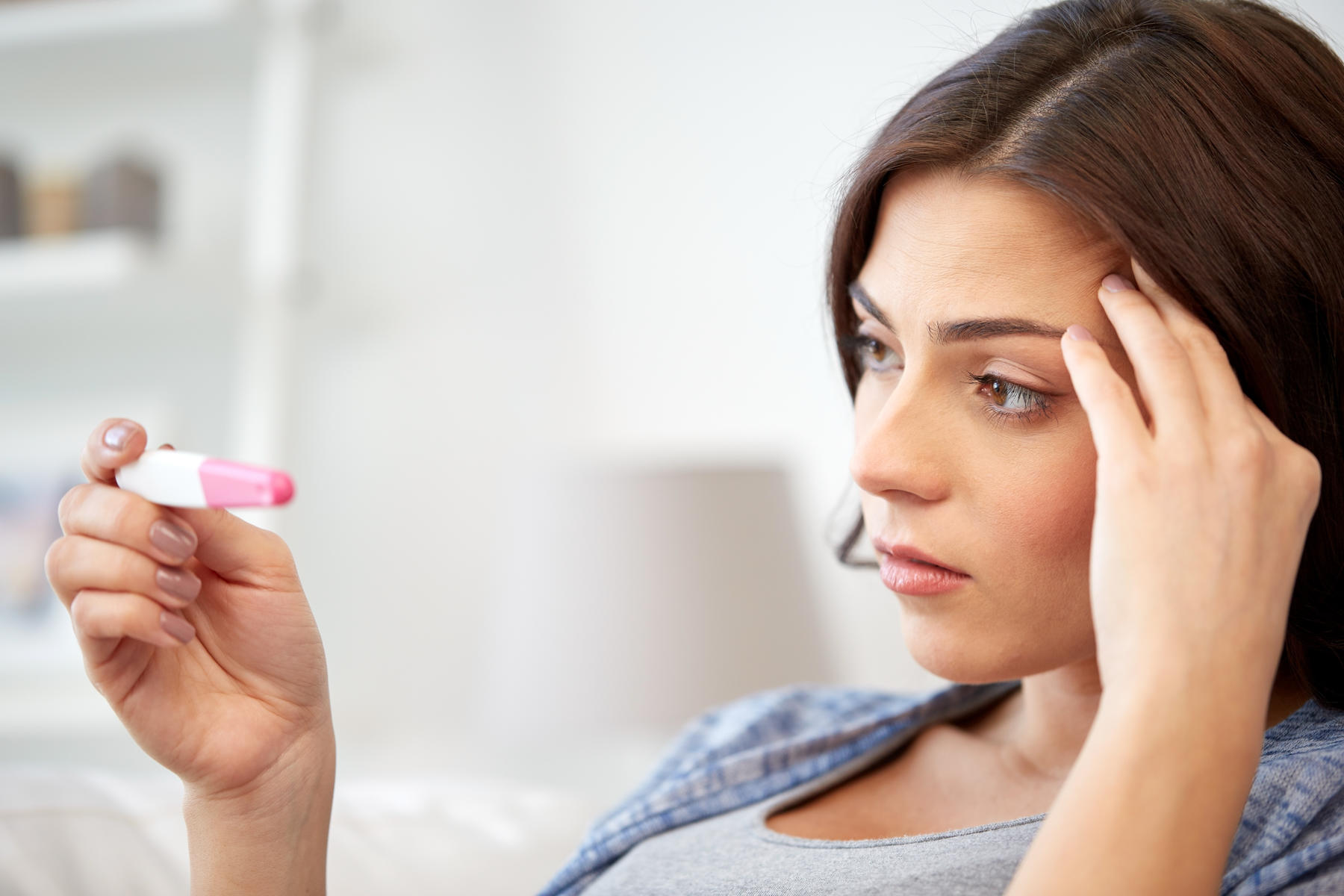
If you're feeling overwhelmed about trying to get pregnant or just feel like you're the only one struggling with the whole process, read on. Mary Jane Minkin, M.D., a clinical professor in the department of OB/GYN and reproductive sciences at the Yale University School of Medicine, who has been in private practice for more than 35 years, breaks down the facts to help you feel a lot better about TTC.
#1: You're not the only one trying to capitalize on your ovulation
Fact: Ovulation usually happens between days 11 and 21 of your cycle. Ovulation lasts for 12 to 48 hours but you are potentially fertile for 7-10 days.
Dr. Minkin says: "To maximize your chances of getting pregnant, consider using an ovulation predictor kit, such as First Response, which is very accurate and will give you a heads up and alert you that ovulation is happening within the next day. Have sex on this day and then the next day or at least the second day after this to maximize chances. If it seems you ovulate pretty consistently on one day, have sex a couple of days in advance of the predicted date—sperm can hang around for three days or so—and then make sure you have sex on the ovulation day itself. One important note: If your ovulation cycle is erratic or isn't happening at all, check in with your gynecologist on the sooner side."
#2: Many others are taking just as long to conceive
Stat: 1 in 8 couples (or 12 percent of married women) have trouble getting pregnant or sustaining a pregnancy.
Dr. Minkin says: "There's more data we can add to this statistic that will help keep you feeling positive: Half of couples will conceive within the first six months of trying; 80 percent by a year of trying and about 90 percent by two years of trying."
#3: Even if your infertility is 'unexplained' you can still get pregnant
Stat: 15 percent of couples diagnosed with unexplained infertility will eventually become pregnant without treatment.
Dr. Minkin says: "About 15 percent of couples have what is called 'unexplained infertility,' which means we can't pinpoint why you're having trouble conceiving, but a significant number of these couples will eventually get pregnant without intervention."
#4: You're right to think about that biological clock—but age may not be an issue
Fact: Because fertility in women is known to decline steadily with age, some providers will urge women ages 35 and older to be evaluated and treated after 6 months of unprotected sex.
Dr. Minkin says: "If you are 35 or older, and have been trying for six months or more and haven't succeeded, check in with your gynecologist—even though there is a good chance you could get pregnant without any intervention. At this point, it's always a good idea to meet with your gynecologist to do some simple testing and get some guidance."
#5: Most women need just one year to conceive
Stat: About 94% of married women ages 15 to 44 years are able to get pregnant within one year.
Dr. Minkin says: "As this statistic shows, the majority of women will conceive within a year but, again, fertility does indeed diminish with age—we are born with all the eggs we have and healthy eggs do diminish over the course of time. That said, one simple tip is to be wary of personal lubricants as most can hinder sperm motility. You might want to try Pre-Seed, a lubricant that's clinically tested to be fertility-friendly and mimics the body's natural fertile fluids."
